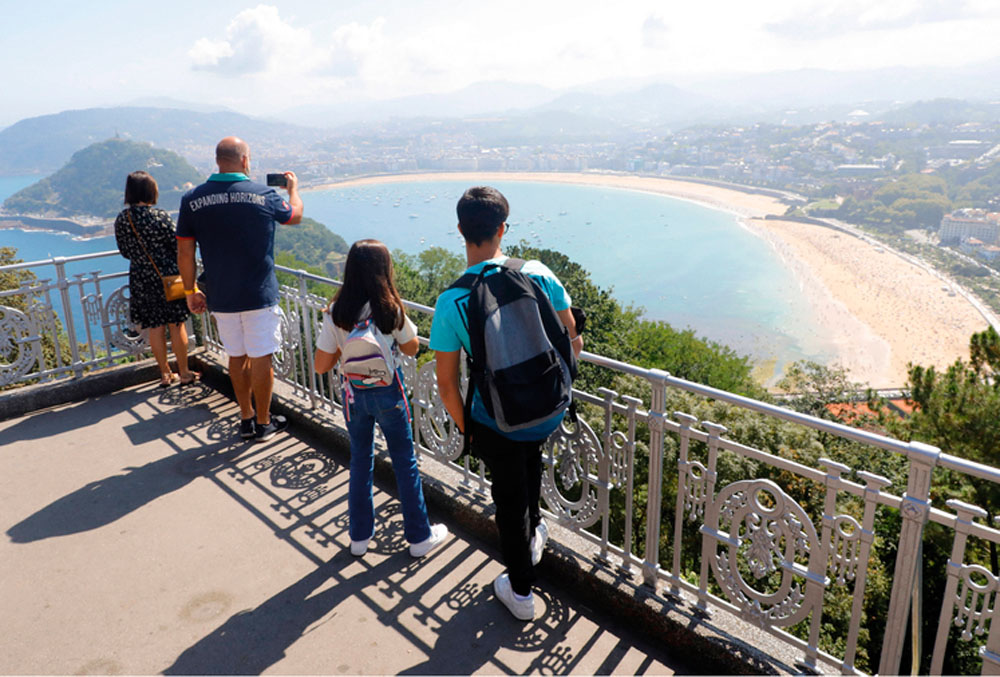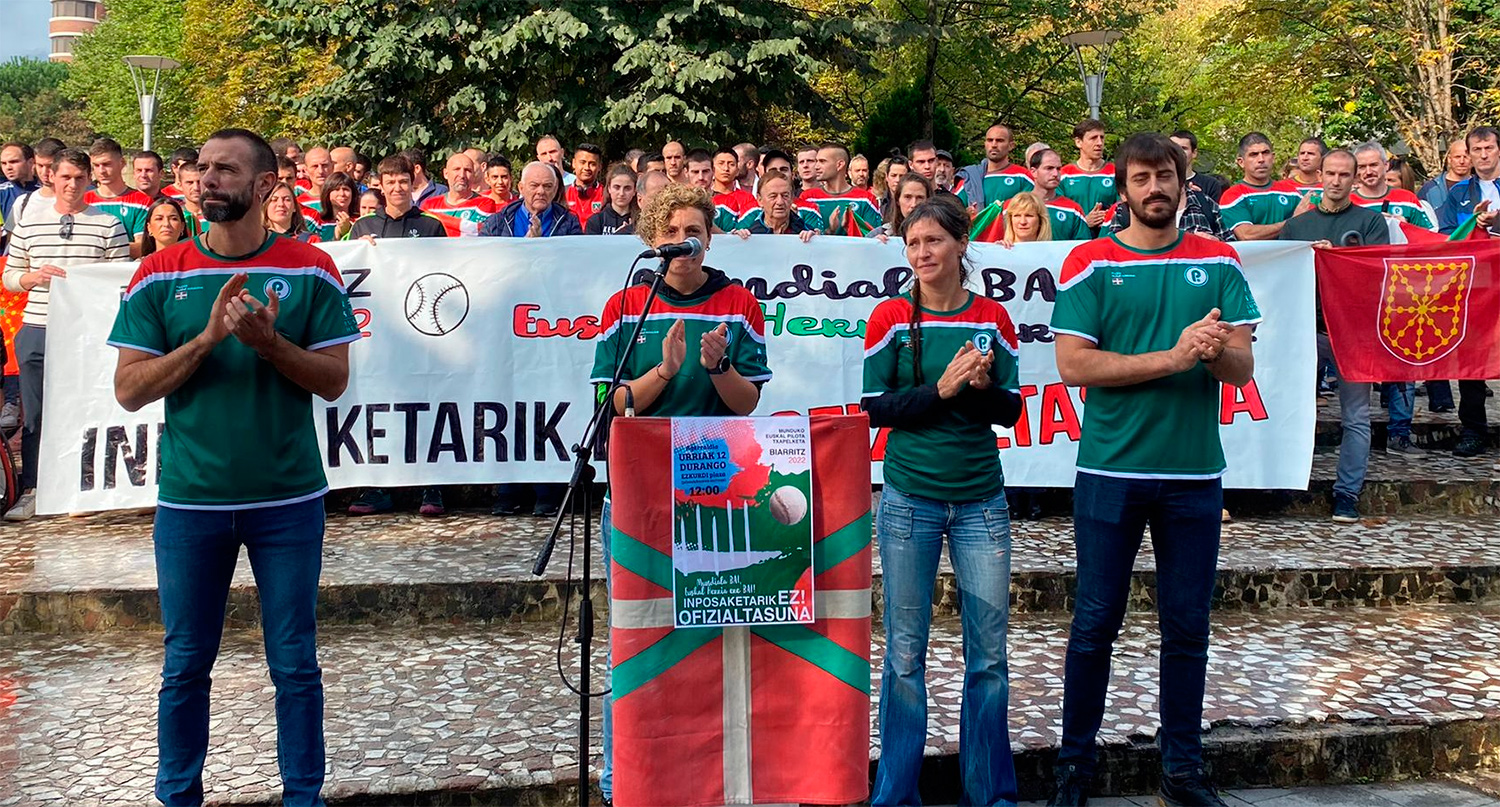Training against violence
- The practice of sport by as many people and as many years as possible is a benefit to a healthy society. But according to the studies, almost eight out of ten who practice sport have suffered some violence. They can be insults, shouts, blows, physical punishment, neglect, humiliation, discrimination, forced kisses, rape... How many teens have left the sport because the context was not safe and friendly? The law in force since 1 September in Gipuzkoa, Bizkaia and Araba aims to form the view of all members of sports clubs so that we stop seeing violence in sport. The training hours needed to deactivate violent behaviors are still many, this is only the beginning of a long road. But the effort is worthwhile because the health of young people and their relationship with sport is at stake.
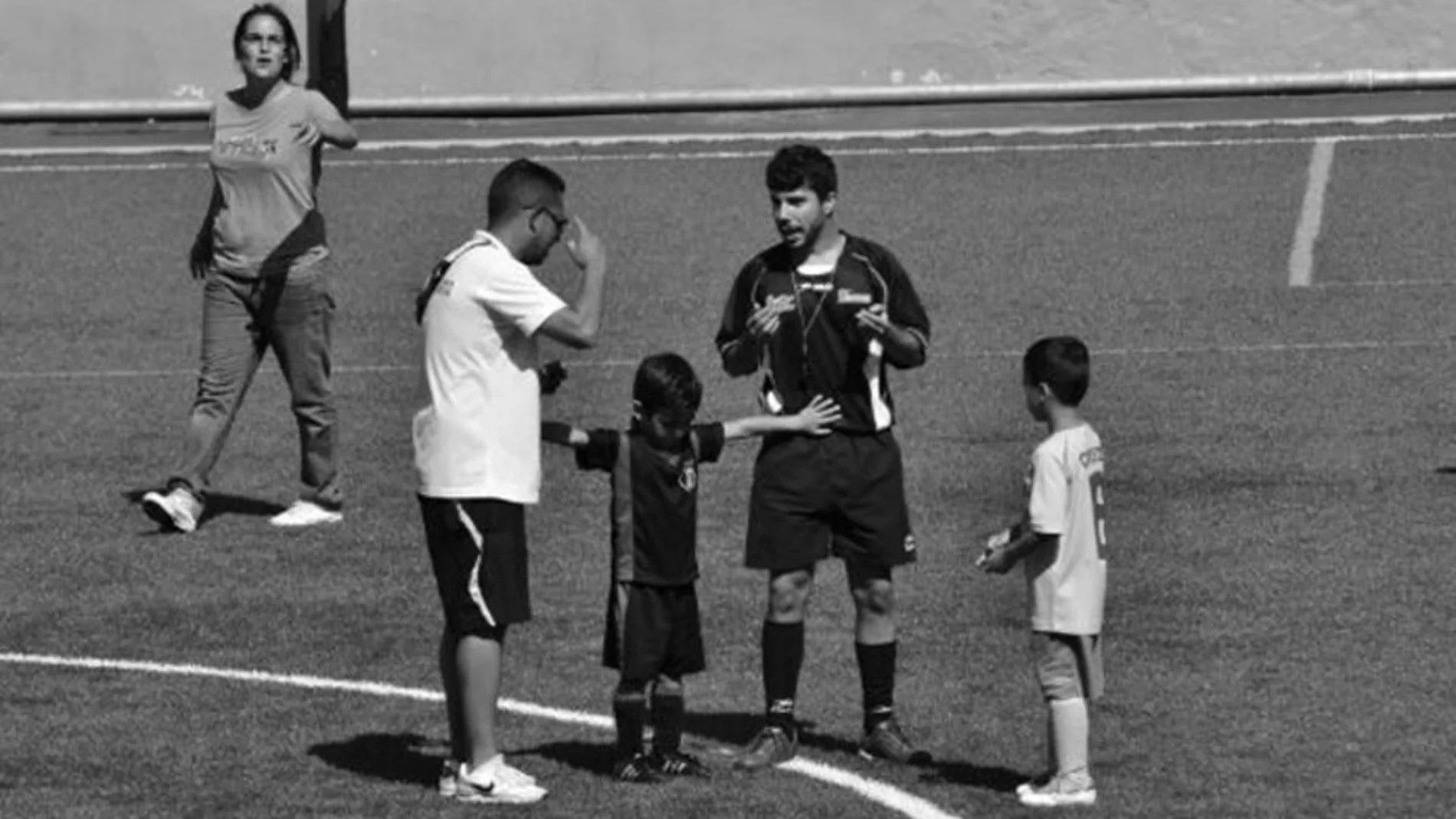
For the same fee, A boys and girls will have one more day of training each week in football clubs from different locations. We accept structural discrimination in sport so calmly. Imagine if every week there was a day less class for students who didn't get the best grades in the class? We have so internalised violence in the world of sport that we would not accept it in other areas as normal in sport. During this course, all members of the sports teams have the tools to give a few laps to the subject, to train their eyes to see situations of violence and to try to work a context of safe respect.

In fact, in 2021, the Spanish Government published the Organic Law for the Comprehensive Protection of Children and Adolescents from Violence. It is developed progressively in different areas of society and has been in force since 1 September in Gipuzkoa, Bizkaia and Araba in the sports and leisure area. The Organic Law regulates this area in Articles 47 and 48, and the Basque Government and the three deputies, together with other experts and institutions, have developed a protocol based on this law to make available sports teams, and are offering training and advice to all agents involved with minors: sports club trainers, doctors, referees.
We met with Itsaso Nabaskues Laseras, one of the technicians who worked on the protocol. It explains the importance of a safe context for sports practice: "Sport is very good for integral development, socialization, body and mind. It is essential to provide children with a safe and positive context, especially at an early age, to enable them to practice sport throughout their lives." In fact, for Nabaskues, the main consequence of sports micro-indarchies is that children and young people leave sport: "If we have experienced a difficult situation or violence in one area, we will surely not want to return. This is a serious consequence because sports habits are fixed at early ages for adulthood."

"The violence in sport is very naturalized"
As in other areas of life, there are also situations of violence in sport. Last year, the Provincial Council of Gipuzkoa organized a conference by expert Montse Martí to publicize the existing research on this subject (here we read the report). Martí explained that in other areas of life there is more violence than in sport, but the amount given in sport is not small: The investigation, involving 1,472 people, showed that 78% of them experienced at least one situation of violence in sport. According to the same study, the most frequent violence (70%) is psychological. And they're more tolerated by performance athletes. In Nabaskues' words, "after knowing this investigation, this law is absolutely necessary. It is essential to address the issue of violence also in the sports field".
What do you think about violence in sport? Do you consider it normal to comment on the physique or to force him to behave injured? When drafting the basic protocol available to sports teams, technicians have taken into account different types of violence: psychological, physical, sexual, non-affective, sexual and abandonment. In each of these areas, the protocol lists from microindarch to the most violent behaviors:

The technician Nabaskues, who worked on the protocol, pointed out that "in the sports field, a coach screaming is well seen, seems to have discipline and foundation. In sport there are many naturalized and internalized microindarchies that we would not accept in another context."
The protocol includes a series of questions that each of the agents of sports groups can ask themselves so that through these questions we learn to detect situations of violence and stop seeing. Indeed, all actors involved in the fight against violence are an active part of the protocol: trainers, sports directors, doctors, referees, fathers, mothers and minors and young people who practice sport:

Possibility of the protocol remaining in the drawer
The forced kiss that Luis Rubiales gave to the player Jenni Hermoso as president of the Spanish Football Federation and the testimony of tennis player Angelique Cauchy in the French parliament put the issue at the forefront. However, no one will speak to you in the bar of this law and the protocols that this course has entered into force in all sports clubs. Directors and trainers of sports teams have received information via the administration’s email, and many of them have already received specific training on the subject.
But Nabaskues has stressed that the key is for athletes and families to know that sports clubs have to work by law on conflict prevention and resolution, and to do so they have tools such as protocol, training sessions and counselling. If parents and minor athletes do not know this fact, the protocol risks staying in the drawer and continuing as things stand. Navascués: "What we are asking as a starting point is for sports groups to spread on social networks, to be placed on the web, to be disseminated in the parents' whatsap group, to be placed in the club headquarters a summary table, to inform the children to whom they can address within the club if they live any kind of violence..." Nabaskues is clear that only with a course on monitors and the dissemination of the protocol will violence not be overcome: "It will not be easy because there is a great rotation in the world of sport. We are aware that we have only got going and that we will have to continue working from the administration to make this a real impact."
Nabaskues wants to encourage sports clubs to take an active stance on this issue: "The vision of the people who make up the association is fundamental: the awareness about this theme, the importance each group gives to this theme... We know that in small clubs a new task is added to everyday reality and we know that it is a workload, an effort. But we sincerely believe that the Administration will continue to provide tools and that the participation of all is essential to progress in this. We are aware that many sports groups are moving forward thanks to the work of volunteers and volunteers, and these training courses are free and online. We have tried to make it as easy as possible, so that from an economic point of view and at any time we can connect from home."

How to act
On legal request, sports clubs must designate one of their members as "Protection Delegate", being responsible for promoting detection, trying to channel problems and comply with the protocol. Therefore, the first step for those who perceive a situation of violence is to turn to it. However, Nabaskues wanted to make it clear that the protection delegate will not be a judge in conflicts: "You are responsible when you know a situation of this kind, take the steps set out in the protocol and communicate it to the corresponding person. The public administrations need to specify how the investigation of these cases will take place and which institution will have the power to do so".
The choice by sports groups of the responsible member "protection delegate" is essential: "For children, you have to be a close, empathetic person, because if you're not going to tell your experiences." Nabaskues says that it is not enough to give a course to the Protection Delegate and that in this direction the administration has to work in the long term: "Continuing education for this figure is mandatory. It is not any topic, and it would be good to create an in-person meeting space of support representatives to share views, experiences and solve doubts".
In cases where, for justified reasons, the situation with the Protection Officer is not released, parents and minor athletes also have the following public advisory services: We are from your Team and You Tell Him.

At the moment there are no sanctions
This Organic Law has not yet developed the sanctions section and the protocol made available to sports groups does not specify the consequences for each situation of violence: "The instruction contained in the protocol is that if the 'protection delegate' is aware of a situation of violence, that of his group should go to the Gara service and there they will advise him on how to act," explains Nabaskues. It says that this institution, linked to the Basque Government, is very involved in the issue and proposes tools or measures to sports teams: "For example, to put someone in support of the person who has been able to commit the attack to monitor what kind of actions he performs, or to invite him for a few weeks not to come until the case is clarified, or..."
The technical team that developed the protocol is currently developing the monitoring system. In Nabaskues' words, "the monitoring system is a way to evaluate". The Basque Government will open a platform in which each year the protection officer of each sports team must include data such as preventive actions carried out, cases of violence on their team... "The goal is to keep track."
Although the law has not developed the sanctions section, Nabaskues stresses that the administration can: "For example, you can receive your subsidy on lines that sports clubs have to prove training." She warns that sports clubs can also do many things: "In their statutes, they can write what behaviors are going to be approved or what kind of people they want: sports teams can choose which template, which figures they want in their group."
Before chanting in the logic of punishment, another effective step that groups can take is to address the issue with children and young children, to make them aware of what the normalized violent attitudes so far are and not give them legitimacy. Navascués: "It is imperative that children and young athletes talk about this issue. Explain the theme, present precisely what situations of violence we will not accept and involve them so as not to accept them. Children see a lot of things in everyday life and have something to say." Is it not part of a sport learning to play with sportsmanship?
More violence in performance sport

A study carried out at European level (prevalence and characteristics of different violence against minors in sport) has shown that as the level of sport increases the numbers of violence. Why? For Nabaskues "it has to do with pressure on the outcome, it seems that everything is worth getting the result and it is a context in which there are many tensions. On the other hand, the coach takes many hours. Fears are also greater for the athlete: if he says something they will not call him to play, for example.”
Proof of this is that in the French state, 600 athletes have reported sexual assaults: tennis players, skaters, juices, athletes... The first complaints date from 20 years ago, but many are current, 107 from the 2020-2021 season. 70% were women and 84% were minors.
In recent weeks the French parliament has set up a committee to discuss the issue and Tennis player Angelique Cauchy has told here what she has already denounced in the courts: At 12, Andrew Geddes, his coach, raped 400 times in two years.
Iñigo Cabacas Herri Harmaila taldea eta Athleticen arteko harremana nahaspilatuta dago azkenaldian. Iñigo Cabacas Herri Harmailako Iñigorekin hitz egiteko aukera izan dugu astelehenean.
The achievement of the Euskadi Selection has undoubtedly been a historic achievement. But if you stick to that, for many Basques – I too, because I am Navarro – it will be the darkest and saddest day. After enjoying the joy and warmth of the first few days, let's go back to... [+]
After so many years of struggle for it, 34 years, precisely, we are very pleased with the decision taken a few days ago, on 28 December, Innocent Day, in Pamplona, at the assembly organized by the International Federation of Basque Ball. Well, from now on we will have the... [+]







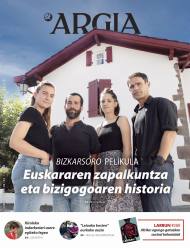

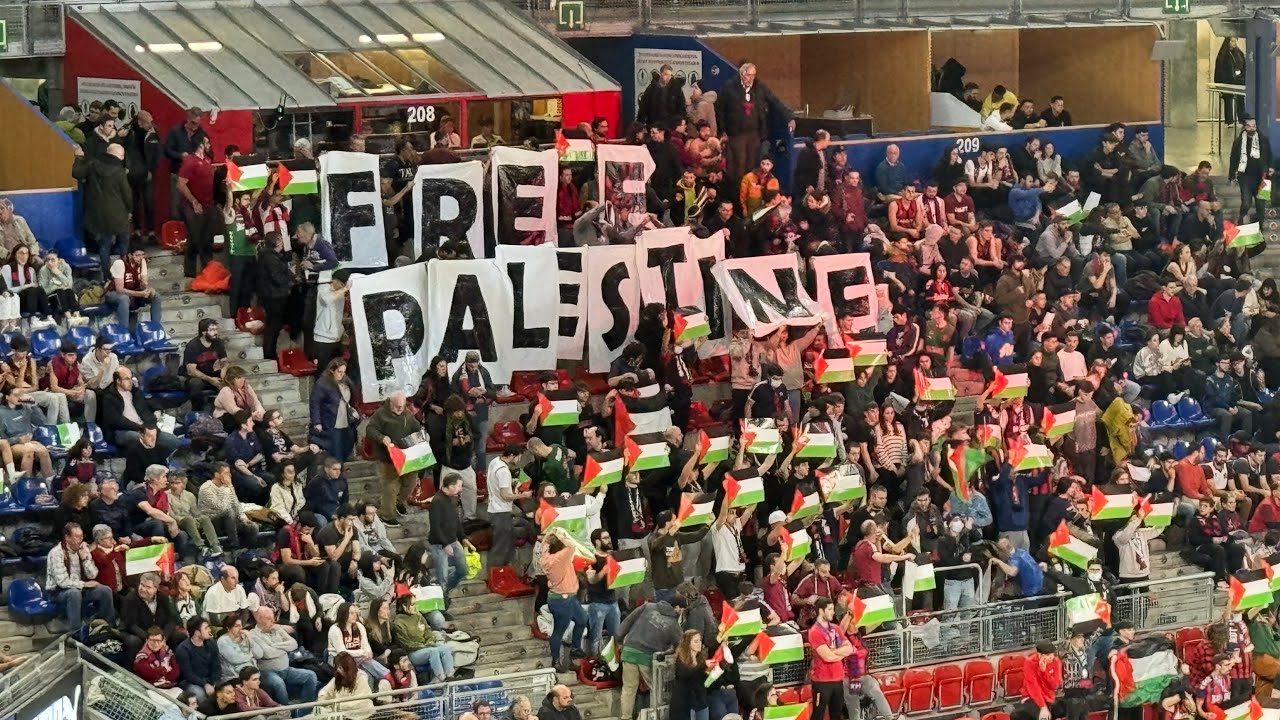
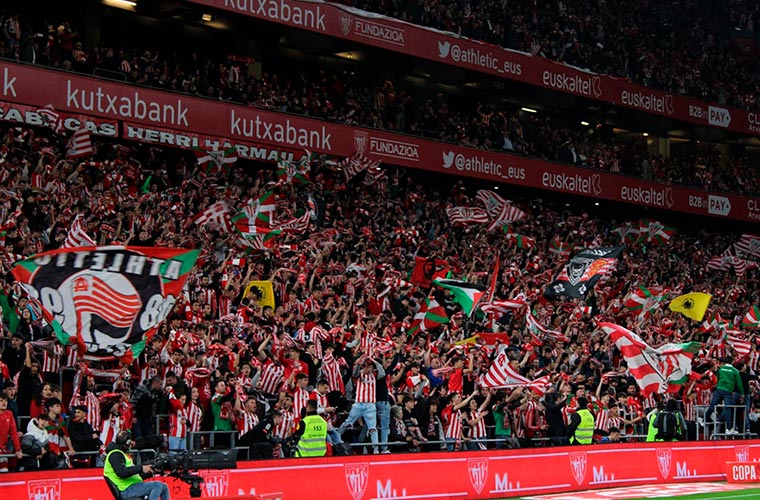

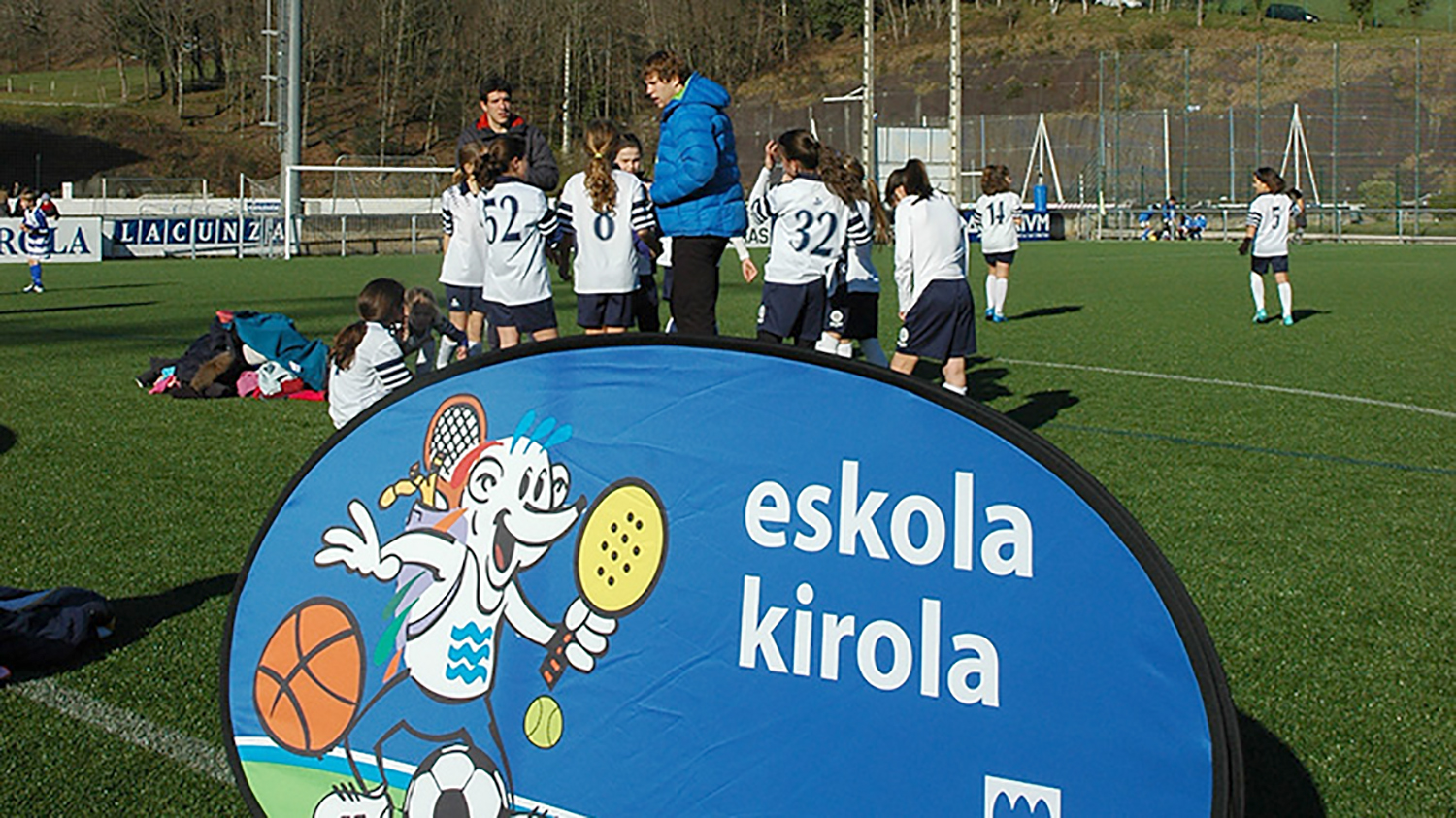
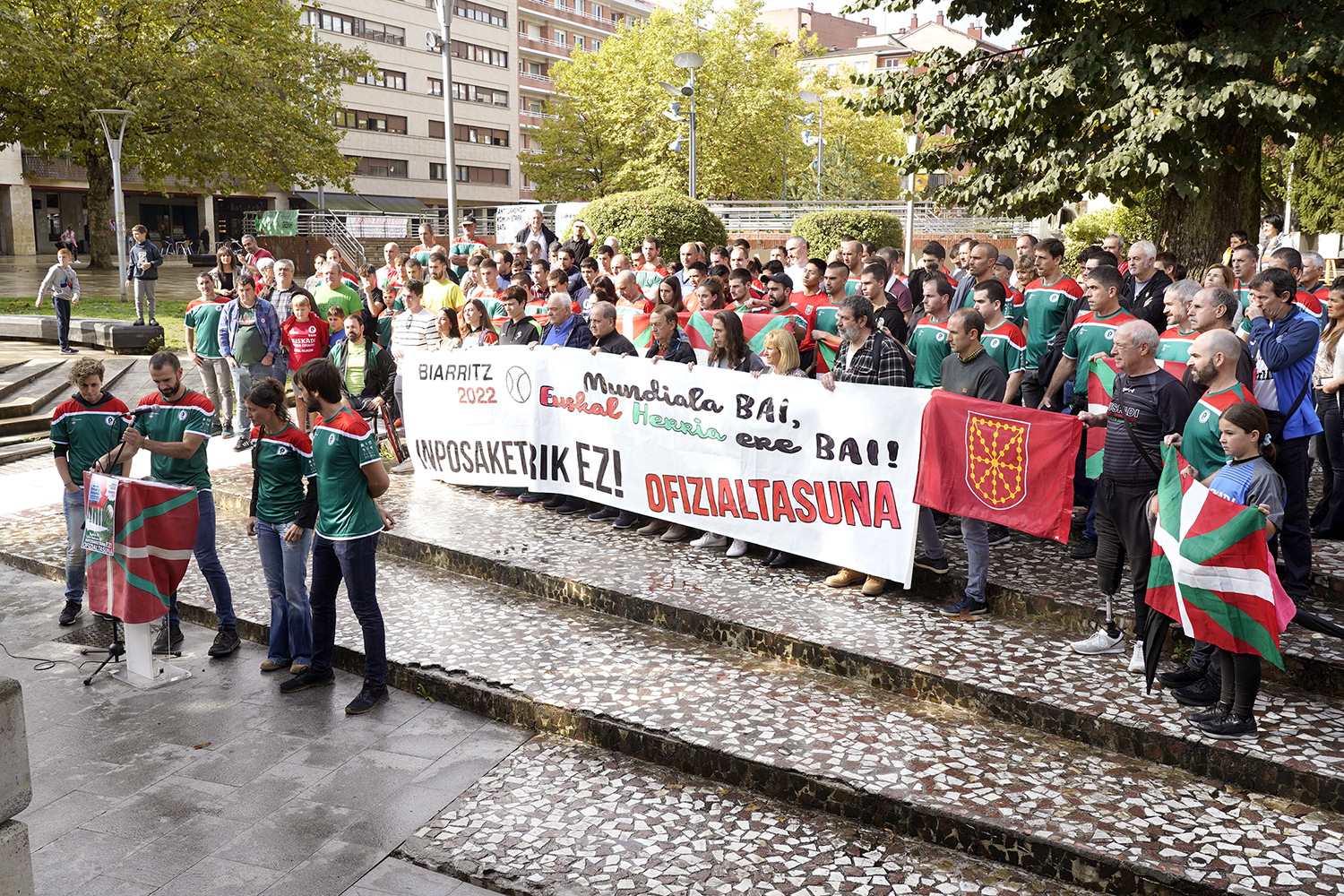
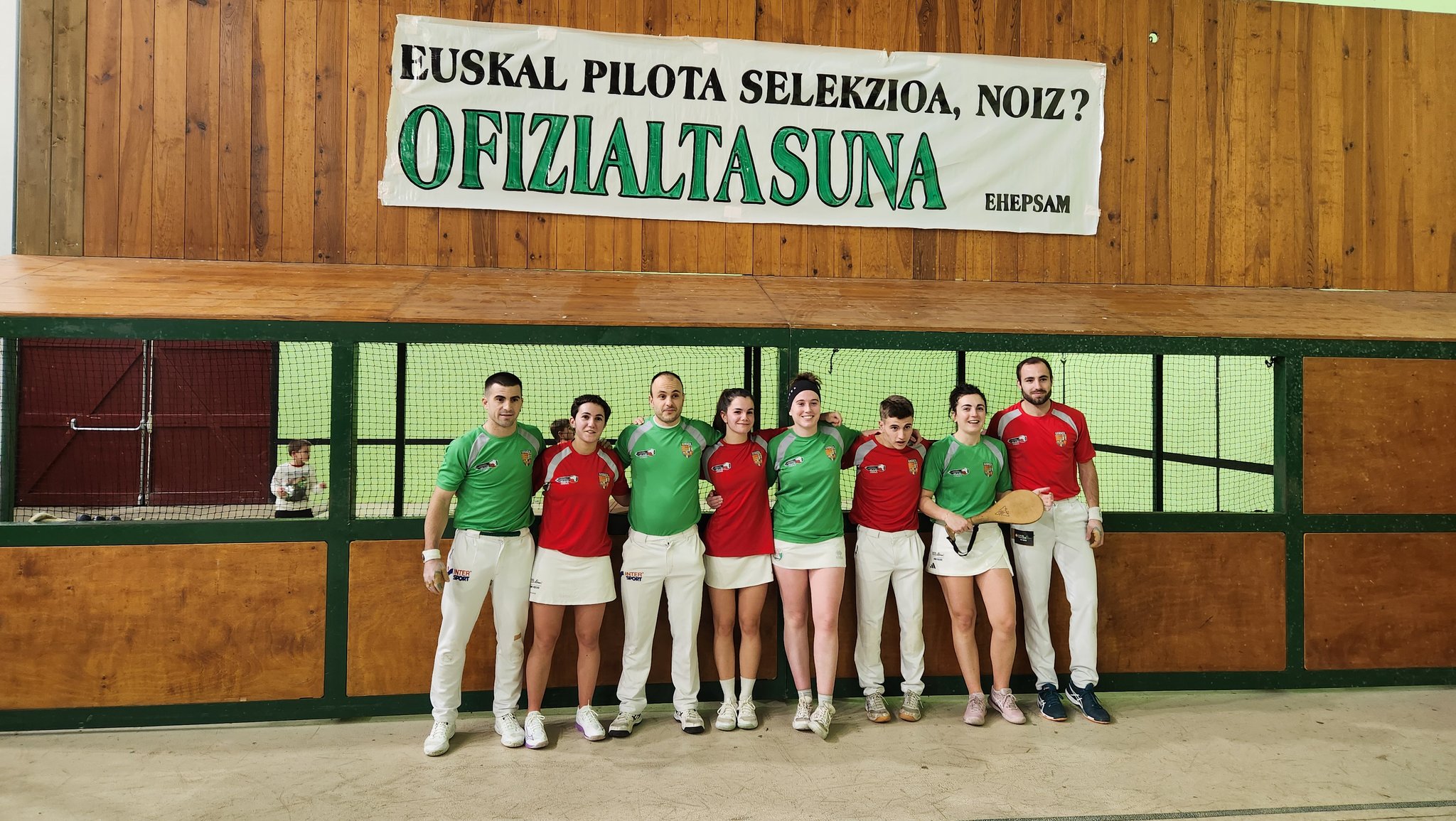
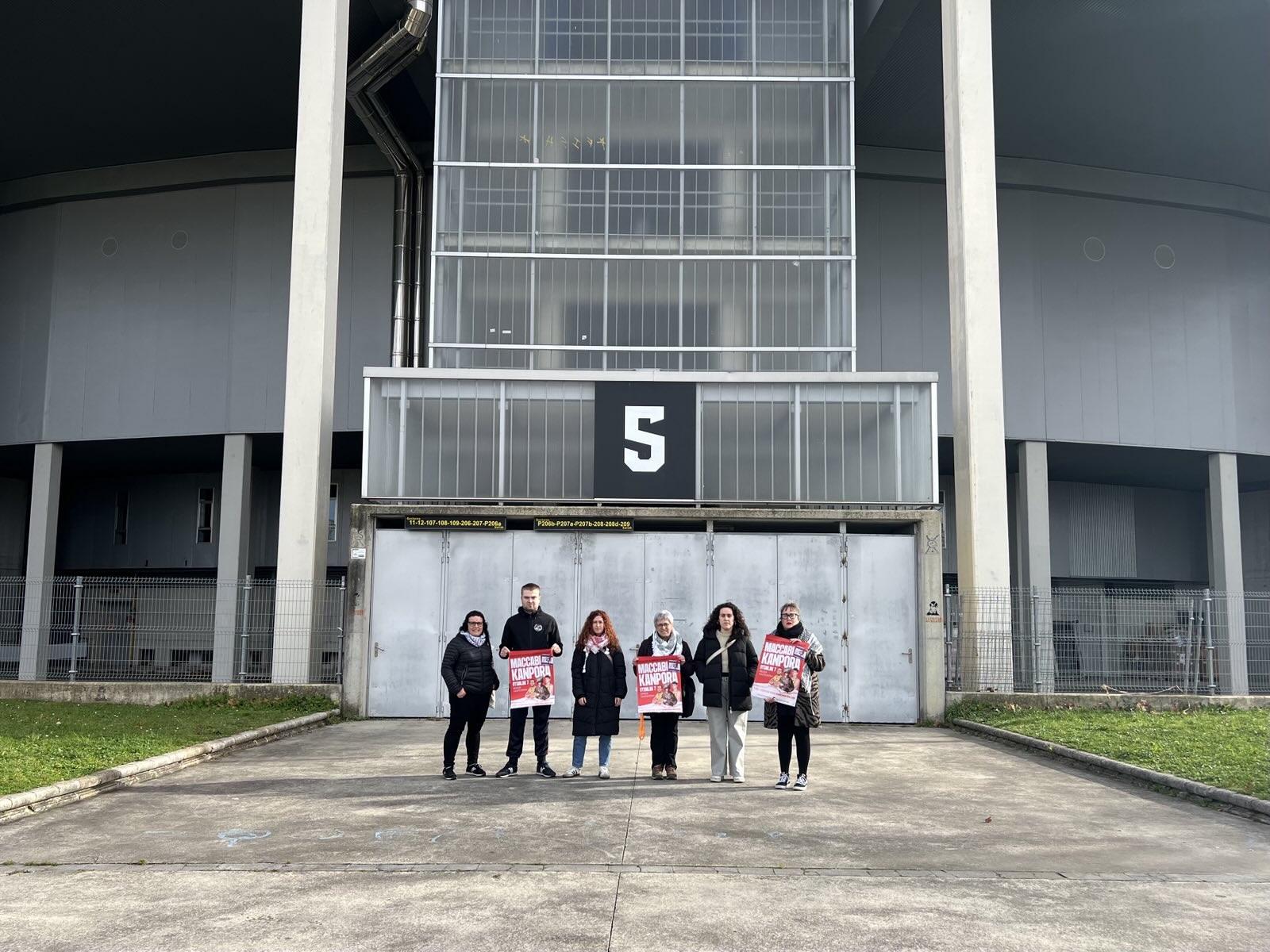

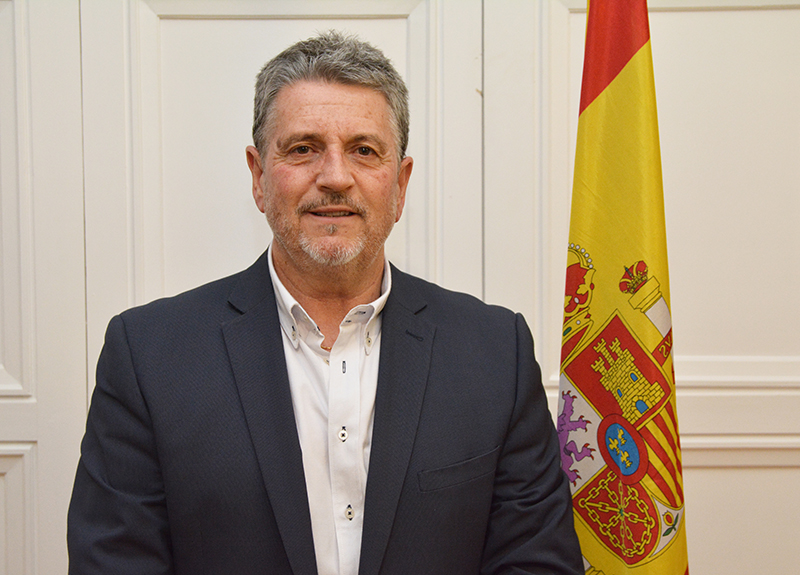

.jpg)
